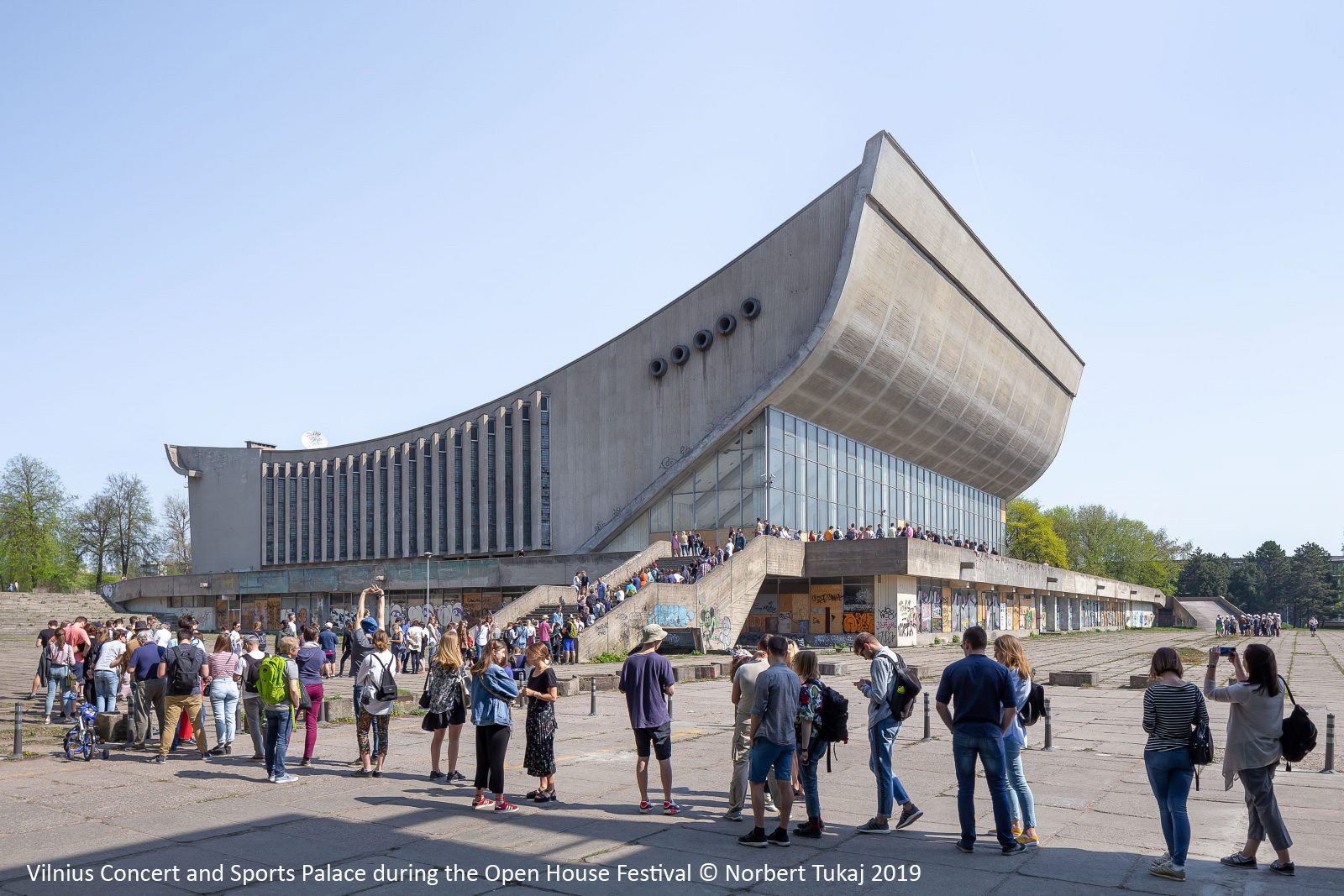 Call for Participants
Call for Participants
Summer School
CULTURAL LANDSCAPES: CONCRETE HERITAGE
Organised by Vilnius University, Faculty of History “(Post)Authoritarian Landscapes” Research Centre in collaboration with post-doctoral research “Evaluation and Preservation of Post-War Concrete Architecture.”
Vilnius and Palanga, Lithuania
23–26 September, 2024
Organisers:
- Prof. dr. Marija Drėmaitė (Vilnius University, Faculty of History, (Post)Authoritarian Landscapes Research Centre)
- Post-doctoral researcher dr. Aušra Černauskienė (Vilnius University, Post-doctoral Fellow)
Teachers/Workshop leaders:
- Assoc. prof. dr. Wido Quist (TU Delft; Secretary General DOCOMOMO International)
Invited Speakers:
- Dr. Stefania Landi (Pisa University, DESTeC, Scuola di Ingegneria; ICOMOS ISC20C Vice President)
- Assistant Professor dr. Błażej Ciarkowski (University of Lódź, Department of History of Architecture)
- Architect Gintaras Balčytis (Chairman of the Lithuanian Union of Architects and curator of the Lithuanian Pavilion at Venice Biennale 2024).
The heritage of concrete architecture (second half of the 20th century) is experimental and diverse, yet it is not neutral. It reflects the operated ideological, economic and ecological systems and sociocultural contexts of different regimes, and the socialist anthropocene in the case of Lithuania. Therefore, detailed historical, cultural and architectural research that lead to preservation strategy are required on a case-by-case basis.
As a young heritage, concrete poses many preservation challenges: How to determine the statement of cultural significance considering concrete specifics, historical context, and contemporary requirements, including sustainability? How to deal with the still-existing non-appreciation of aesthetics and negative associations with authoritarian regimes? What criteria and aspects should be included to determine the proper and suitable intervention (conservation, repair, or reconstruction) to preserve the authenticity and valuable features? Training school “Cultural Landscapes: Concrete Heritage” is aimed at PhD students and early career scholars in the field of built environment and humanities (heritage studies, history, art history, architecture, sociology, anthropology, philosophy, etc.) interested in research, interpretation, and preservation issues of concrete modernist built heritage.
The four-day long training school will include lectures by distinguished specialists in the field, site visits, workshops and discussions. Two sites will be explored specifically: Vilnius Concert and Sports Hall (1965–1971, arch. Eduardas Chlomauskas, Jonas Kriukelis, Zigmas Liandzbergis; engineers Henrikas Karvelis et al.) and Hotel “Žilvinas” in Palanga (1969, architect Algimantas Lėckas, engineer Kęstutis Augustinas).
Vilnius university will accept up to 15 international students. The certificate of 3 ECTS credits will be provided. Vilnius University will cover accommodation and meals for all the participants.
Applications with your CV, PhD/Postdoc research topic and one page project description should be sent by 20 May (Monday) to and
Selected participants will be informed by 3 June (Monday).
Preliminary programme:
Sunday, 22 September. Arrivals
Monday-Thursday, 23–26 September, 9.00-18.00 training in Vilnius and Palanga
Friday, 27 September, morning, departure from Palanga to Vilnius
Friday, 27 September, afternoon, departures
The summer school is funded by Research Council of Lithuania under the Programme "University Excellence Initiatives" of the Ministry of Education, Science and Sports of the Republic of Lithuania (Measure No. 12-001-01-01-01 "Improving the Research and Study Environment"). Project No.: S-A-UEI-23-12.
(Post)Authoritarian Landscapes Research Centre, https://www.if.vu.lt/en/research/projects/pascapes Vilnius University, Faculty of History, https://www.if.vu.lt/en/
